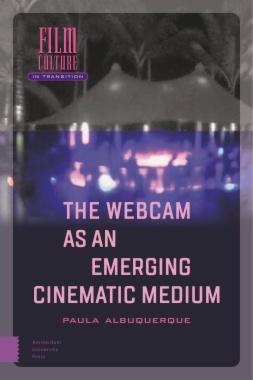All the world’s a stage - literally so, given the ubiquitous presence of webcams recording daily life in cities. This footage, allegedly documentary, recreates cities as cinematic environments as people interact with the multitudes of cameras and screens around them. Paula Albuquerque’s original research and experimental films, presented in this groundbreaking book, expose fictionalising elements in archival webcams and explore video surveillance as an urban condition that influences both perceptions of the past and visions of the future.
- Cover
- Table of Contents
- Ackowledgments
- Introduction
- 1. Video Surveillance versus the Affected Personal Cam
- 1.1 Internalizing the Camera
- 1.2 Affects and the Cinematic Potential: The Affected Personal Cam
- 1.3 Observing the Observer Observing the Observed
- 1.4 The Affected Body of the Camera
- 1.5 Privacy and Subjectification
- 2. Post-Panopticism and the Attention Economy
- 2.1 The Apparatus
- 2.2 The Panopticon
- 2.3 Post-Panopticism
- 2.4 Attention Economy
- 2.5 The City as Film Set
- 3. From Cinematographic to Cinematic Apparatus
- 3.1 The Classical Cinematographic Apparatus
- 3.2 The Cinematic Experience
- 4. Cinematic Chronotopes�: The Temporality of the Cinematic Mode of Existence of the Webcams
- 4.1 The Cinematic
- 4.2 From Real Time to Realtime
- 4.3 Webcam Temporality and Realtime: A Synthesis of Cinematic Time and Network Time
- 4.4 Realtime-generated Cinematic Chronotopes
- 5. Webcams and the Archive
- 5.1 Referentiality
- 5.2 Materiality
- 5.3 Narrative
- 5.4 The Fragmented Historicity of the Digital Flux
- 5.5 The Database Logic of New Media Objects
- 6. Appropriating the Cinematic Apparatus
- 6.1 On Appropriation
- 6.2 The Significance of the Precarious Aesthetic
- 6.3 Afterword
- Conclusion
- Bibliography
- List of Images
- Index of Authors
- Index of Makers
- Index of Subjects / Artworks

